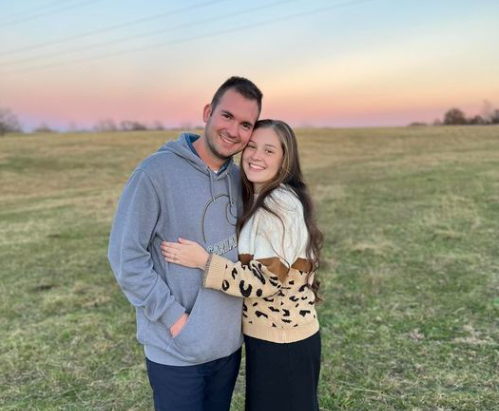Three American missionaries, including the daughter and son-in-law of Missouri State Representative Ben Baker, have been killed by gang members in Haiti. The murders come as the Biden administration pushes for the rapid deployment of a Kenyan-led multinational force to restore order in the violence-stricken Caribbean nation.
Ben Baker took to Facebook to share the heartbreaking news, writing, "My heart is broken in a thousand pieces. I've never felt this kind of pain." His daughter Natalie Lloyd and her husband, Davy Lloyd, were Christian missionaries who had dedicated their lives to helping the people of Haiti. According to their missionary group, Missions in Haiti Inc., the couple and another member named Jude were ambushed by a gang of armed men while leaving a church service, resulting in their deaths.
A spokesperson for the White House National Security Council expressed the administration's condolences, saying, "Our hearts go out to the families of those killed as they experience unimaginable grief." The brutal killings highlight the urgency of addressing Haiti's escalating security crisis, which has seen a sharp rise in gang violence and instability since February.
President Joe Biden recently voiced optimism about resolving Haiti's security woes with the arrival of a 2,500-strong multinational force led by Kenya. This force was expected to begin deploying this week, coinciding with Kenyan President William Ruto's state visit to the US. However, logistical issues have delayed the initial deployment, leaving Haiti in a precarious state as armed gangs continue to assert control over much of the capital, Port-au-Prince.
Speaking alongside Biden, President Ruto expressed confidence in the mission's ability to curb gang violence, stating that the US-backed policing effort would "break the back of the gangs and the criminals that have visited untold suffering on Haiti." However, the delay in deployment has raised concerns about the readiness and safety of the mission.
Sources familiar with the situation told Reuters that the Kenyan officers were put on standby without an explanation for the delay. Another source indicated that conditions in Port-au-Prince were not suitable for receiving the officers. Observers speculate that the postponement might be a strategic move to avoid alerting gangs of the incoming force, potentially averting surprise attacks.
Diego Da Rin, a Haiti expert from the International Crisis Group, highlighted the challenges the multinational force will face. "The gangs have never controlled so much territory in Haiti. They have expanded their armies and their arsenals and established strongholds in areas the police have not accessed for years," he explained. Recent attacks on police stations by armed groups send a clear message against foreign intervention, emphasizing the magnitude of the task ahead.
The Biden administration has called for an expedited deployment of the Kenyan-led force following the missionaries' deaths. "The security situation in Haiti cannot wait," a National Security Council spokesperson emphasized. Missouri State Representative Ben Baker's personal connection to the tragedy has added a poignant urgency to the calls for intervention.
The violence in Haiti has surged since a coordinated gang uprising in February, which forced former Prime Minister Ariel Henry from power. An interim presidential council now leads the country, but the situation remains volatile. The United Nations reports that over 1,500 people have been killed in gang violence this year alone, with hundreds of thousands displaced.
Despite the need for intervention, many Haitians remain wary of foreign forces due to past experiences. A previous UN peacekeeping mission in Haiti was marred by a cholera outbreak and sexual abuse allegations, leading to deep-seated distrust. Daniel Foote, a former US special envoy to Haiti, questioned the clarity of the new mission's mandate, asking whether the force would have arrest authority or focus on protecting infrastructure.






